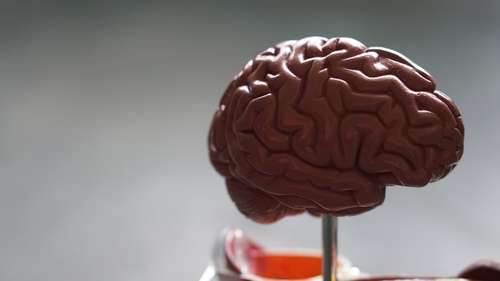7 Minerals and Their Link to Depression Risk
When it comes to mental health, you might already know that what you eat plays a huge role in how you feel. Some of us might take our diet for granted and never think that minerals could be a secret weapon against depression. But recent cross-sectional analyses of global health data have shown that certain minerals could be pivotal in lifting our mood and maintaining our mental wellness. It’s pretty amazing how even small nutrients can have a big impact on our brain health!
In my own journey, I’ve found that being mindful about what I eat has helped me keep my spirits up. Understanding the role of essential minerals like selenium, potassium, phosphorus, magnesium, zinc, iron, and calcium has opened up a whole world of depression prevention strategies. Have you ever wondered if your diet could be secretly steering your mood? Let’s dig into each of these seven minerals and see how they are linked to depression risk.
Selenium: The Tiny Antioxidant Powerhouse
This section introduces selenium’s role as an essential antioxidant that may protect brain function and influence mood disorders. Selenium is vital for brain health by managing oxidative stress and inflammation.
Selenium, though required in only trace amounts, plays a tremendous role in defending your brain against cellular damage. I remember reading about studies where lower selenium levels were found in people showing early signs of depression symptoms. It’s almost like this tiny mineral acts as a shield, protecting brain cells by mitigating oxidative stress. The idea that something as minute as selenium can help reduce depression risk is striking, especially when you consider the complex pathways of depressive disorders.
When you include foods like Brazil nuts, seafood, and whole grains in your diet, you’re not just adding a crunch to your meal but also boosting your nutrient intake that can aid in depression prevention. It’s a neat reminder that sometimes small dietary changes can have meaningful benefits for your mental health.
Potassium: Balancing Electrolytes for a Better Mood
Potassium is well-known for maintaining fluid balance and proper muscle function, but its influence goes deeper into the brain’s neurotransmission processes. This section sets up the discussion on how potassium affects both mood and depression risk.
Potassium is like the unsung hero working behind the scenes. It ensures that nerve signals travel smoothly, which is essential for proper brain function. Imagine your brain as a busy train station where every signal needs to arrive on time—the absence of sufficient potassium can lead to a slow-down or miscommunication, potentially contributing to depression risk. In everyday life, eating bananas, spinach, and sweet potatoes not only nourishes you physically but also supports mental wellness.
This mineral is crucial for balancing electrolytes, and that balance is essential for both heart and brain health. A deficiency in potassium could lead to fatigue and mood swings, so it’s important to keep your levels in check as part of a balanced diet.
Phosphorus: The Energy Investor for Your Brain
Phosphorus doesn’t always get the spotlight, but it plays a crucial role in energy production which affects your overall mental state. A quick introduction to phosphorus sets the stage for understanding its more hidden benefits to mental health.
Phosphorus is essential in forming ATP—your body's energy currency. When your energy production is efficient, your brain can function optimally. A dip in energy might translate to sluggish thinking or mood dips. Incorporating rich sources of phosphorus such as dairy products, meat, and legumes can pack your day with the energy needed to fend off depression symptoms.
Similar to an investor putting money into a growing enterprise, phosphorus boosts energy reserves, which can be critical in maintaining both physical and mental stamina. It’s an indispensable part of nutritional psychiatry that ties diet and depression together in a fascinating way.
Magnesium: The Relaxation Mineral
Magnesium is often celebrated for its calming effects and its role in reducing anxiety, which is frequently linked to depression. This section gives you a brief introduction to how magnesium contributes to a balanced mood.
Magnesium has earned its reputation as the relaxation mineral for good reason. Not only does it assist in nerve transmission, but it also helps regulate the stress response by influencing neurotransmitter function. I’ve found that on days with high stress, a magnesium-rich snack like almonds or a leafy green salad can make a noticeable difference in my overall relaxation and mood.
Researchers have noticed that inadequate magnesium intake can exacerbate depression symptoms, making it a must-have in any diet aiming at depression prevention. It sometimes seems like magnesium is the gentle friend who quietly supports you during challenging times, helping to ease both mental and physical tension.
Zinc: The Mental Health Support Mineral
This section explores how zinc, recognized for its immune-boosting properties, also plays a significant role in brain function and mood regulation. Zinc is yet another essential mineral that could be linked to reducing depression risk.
Zinc’s influence extends far beyond wound healing and immunity. There’s a strong connection between zinc deficiency and mood disorders, where low zinc levels correlate with increased depression symptoms. When you sprinkle a little extra zinc into your diet—through foods like oysters, beef, or pumpkin seeds—you’re not just caring for your body physically but also supporting your mental health.
The intricate dance of neurotransmitters, which relies on adequate zinc levels, shows how these minerals can affect depression risk in subtle yet important ways. In many cases, zinc works hand-in-hand with other minerals, creating a synergistic effect that boosts overall mental wellness.
Iron: Fueling Brain Function and Mood
Iron is often associated with energy levels and stamina, but its impact on brain function and mood is equally significant. This section provides an introduction to iron’s dual role in fostering both physical energy and mental clarity.
Iron is indispensable for oxygen transport in the body, which is crucial for keeping your brain well-oxygenated and alert. Anemia, often resulting from low iron, can lead to fatigue and even depression. Think of your brain as an engine that needs premium fuel; without enough iron, your engine just can’t perform at its best. Foods rich in iron like lean meats, beans, and fortified cereals can make a big difference in managing depression risk and maintaining overall mood stability.
The link between iron and depression is widely acknowledged in nutritional studies. Regularly monitoring your iron intake might be as important as balancing work and sleep for keeping your mind sharp and your mood balanced.
Calcium: More Than Just Bone Health
While many people associate calcium solely with bone strength, this section outlines how calcium is also key in nerve function and mood stabilization. It offers a glimpse into how this familiar nutrient supports depression prevention.
Calcium’s role in regulating nerve transmissions and muscle contractions means it’s not just keeping your bones strong—it’s also ensuring that your brain receives and processes signals efficiently. A deficiency in calcium can disrupt these processes, potentially contributing to mood disorders. Drinking a glass of milk or enjoying a serving of yogurt might seem trivial, yet these dietary choices can support both physical health and mental wellness.
Much like a well-maintained bridge that guarantees safe passage, calcium helps ensure the smooth transport of signals throughout your body. It’s a reminder that sometimes the simplest dietary adjustments can provide significant support in managing depression risk.
In summary, these seven essential minerals—selenium, potassium, phosphorus, magnesium, zinc, iron, and calcium—are proving to be vital allies in the fight against depression risk. Each one plays a unique role in supporting brain function, neurotransmission, and overall mental wellness. While none of these minerals alone is a magic bullet, together they form a robust framework that supports mental health in ways that are both fascinating and practical.
If you’re looking to adjust your diet for better mental health, consider incorporating a variety of foods that are rich in these minerals. Whether it’s a handful of Brazil nuts, a serving of leafy greens, or a slice of dairy, every little bit counts for brain health and depression prevention. Remember, sometimes small changes can be the first step towards a brighter, more balanced life!




